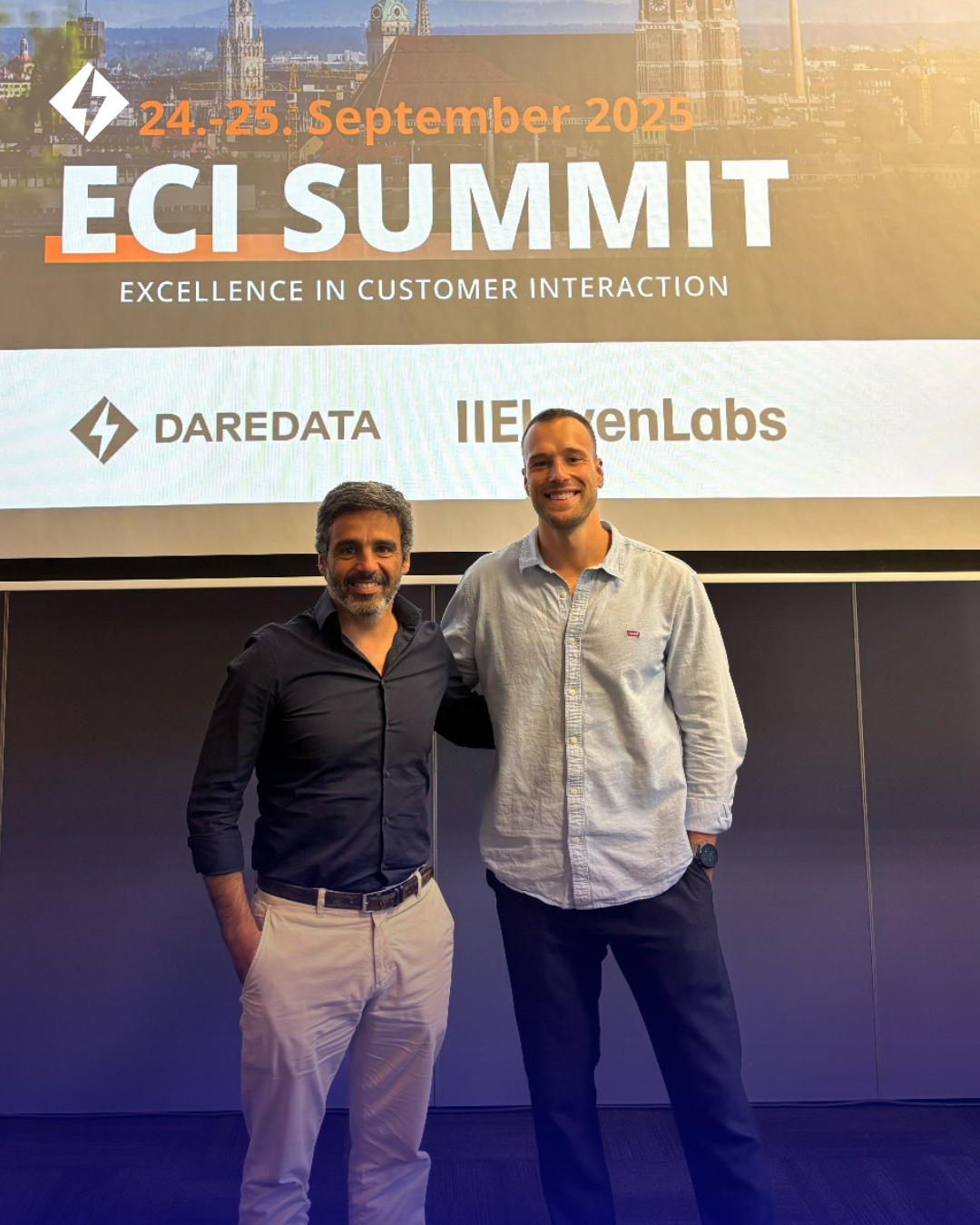%20(2).png)
Related

Ivo Bernardo at AI & Digital Transformation in the Public Sector - UK-Portugal Dialogue
At the UK-Portugal Dialogue on AI & Digital Transformation in the Public Sector, Ivo Bernardo showcased DareData’s AI-powered virtual assistant for AMA and explored AI’s impact on public services.



Runbook Chapter #4: Mastering Generative AI with DareData, TensorOps, and NOS
At Runbook Chapter #4, DareData explored the challenges and strategies of scaling LLMs, alongside experts from TensorOps and NOS, highlighting governance, integration, and real-world AI adoption.


%20(1).webp)
Ivo Bernardo on the “O Futuro do Futuro” Podcast
In this episode of "O Futuro do Futuro", Ivo Bernardo explored the differences between classical and generative AI, the role of AI education, and the challenges of AI adoption in a rapidly evolving digital world.



DareData at “Upskilling: Leadership, Culture & Hiring” with Steve Cadigan
At Unicorn Factory Lisboa’s event, DareData engaged in insightful discussions on leadership, hiring, and fostering a talent-first culture, learning directly from Steve Cadigan’s experience at LinkedIn.



Rui Miguel Figueiredo on How AI Can Simplify Our Lives at the “Unleash Your Second Brain” Conference
At the “Unleash Your Second Brain” conference in Lisbon, Rui Miguel Figueiredo from DareData highlighted AI’s potential to simplify life and improve customer support interactions.



DareData at Data Makers Fest 2024: A Celebration of Innovation and Networking
The DareData team joined forces at Data Makers Fest 2024, where Nuno Brás delivered an insightful presentation on the performance of generative AI systems, and the team embraced the event’s energy and networking opportunities.



Nuno Brás explores the “Hype Cocktail” of Generative AI at Q-Day Conference 2024
At the Q-Day Conference 2024, DareData’s Nuno Brás tackled the growing excitement and challenges surrounding Generative AI, addressing the need for businesses to adopt new operating models to unlock the true potential of AI.



DareData joins Siemens Tech Day: AI and the future of Technology
Ivo Bernardo, partner at DareData, participated in Siemens Tech Day, sharing his insights on the role of AI in transforming industries and the challenges of balancing its opportunities and risks.



DareData Engineering Partner: “There’s a bubble in AI. Services are being delivered without proper expertise”
Ivo Bernardo, a partner at DareData Engineering, discusses the challenges facing the AI industry, highlighting unrealistic expectations and the need for better integration with legacy systems for sustainable success.


Let’s talk
Don’t let your business fall behind. Connect with us today and embrace the AI revolution.



























.png)




.png)

.png)


.png)

















.png)